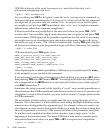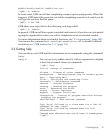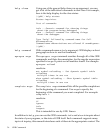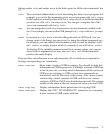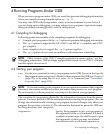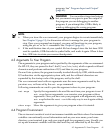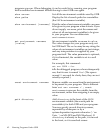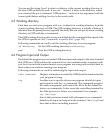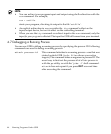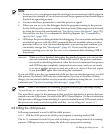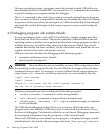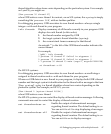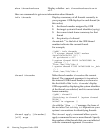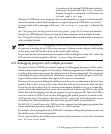programs you run. When debugging, it can be useful to try running your program
with a modified environment without having to start GDB over again.
show envvar
List all the environment variables used by GDB.
show paths
Display the list of search paths for executables
(the PATH environment variable).
show environment [varname] Print the value of environment variable varname
to be given to your program when it starts. If you
do not supply varname, print the names and
values of all environment variables to be given
to your program. You can abbreviate
environment as env.
set environment varname
[=value]
Set environment variable varname to value.
The value changes for your program only, not
for GDB itself. The value may be any string; the
values of environment variables are just strings,
and any interpretation is supplied by your
program itself. The value parameter is optional;
if it is eliminated, the variable is set to a null
value.
For example, this command:
set env USER = foo
tells the debugged program, when subsequently
run, that its user is named 'foo'. (The spaces
around '=' are used for clarity here; they are not
actually required.)
unset environment varname Remove variable varname from the environment
to be passed to your program. This is different
from 'set env varname ='; unset
environment removes the variable from the
environment, rather than assigning it an empty
value.
path directory Add directory to the front of the PATH
environment variable (the search path for
executables), for both GDB and your program.
You may specify several directory names,
separated by whitespace or by a
system-dependent separator character (`:' on
Unix, `;' on MS-DOS and MS-Windows). If
directory is already in the path, it is moved
to the front, so it is searched sooner.
42 Running Programs Under GDB



